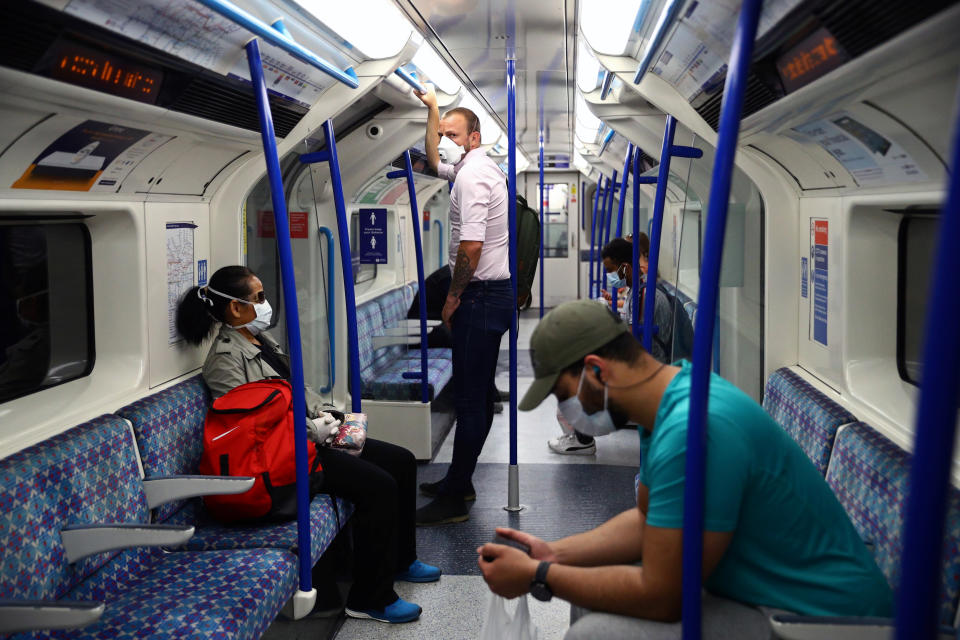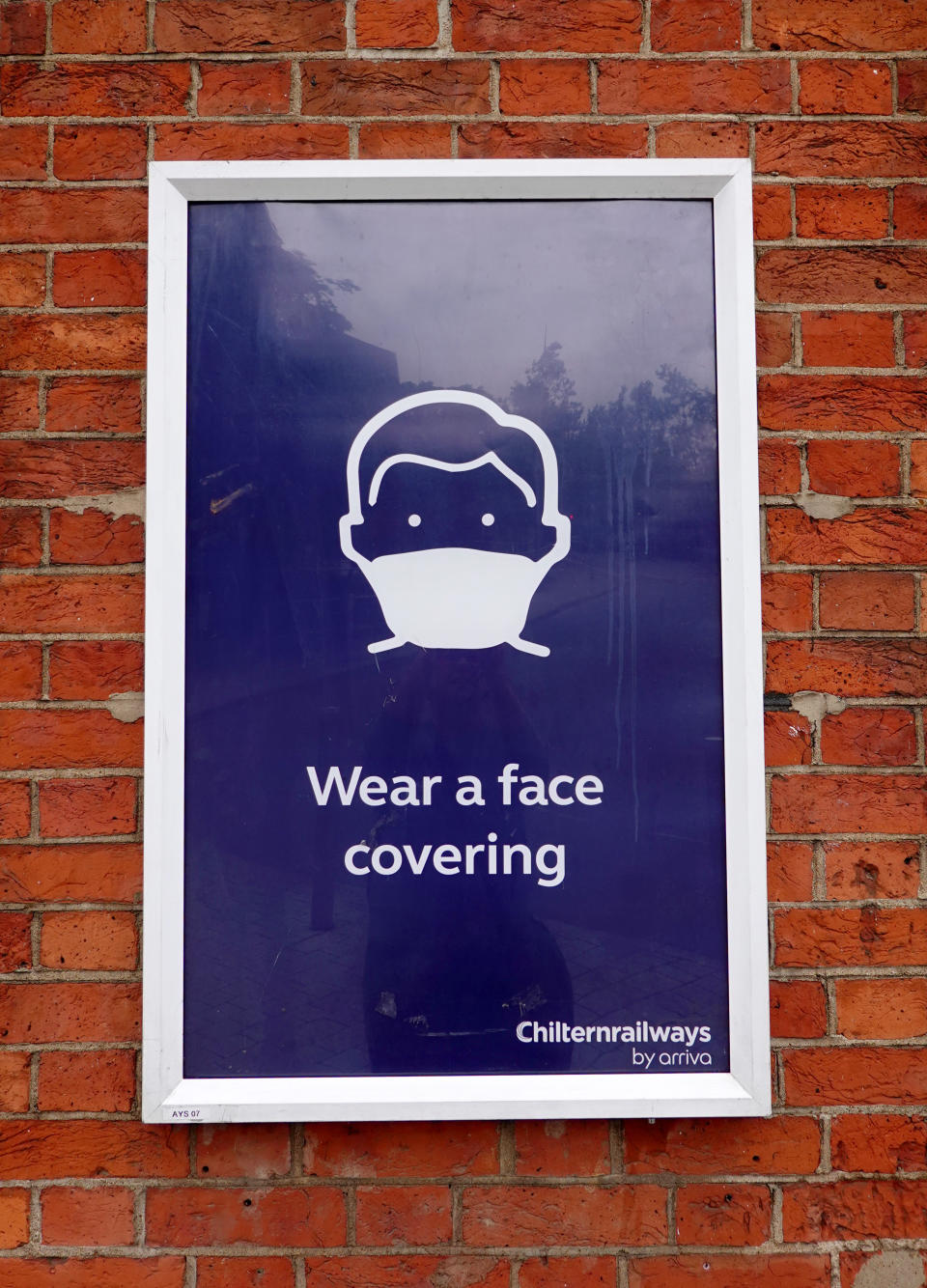Police can 'use reasonable force' against passengers not wearing face masks on public transport

Passengers who do not wear face coverings on public transport can have “reasonable force” used against them by police.
Face coverings became mandatory on Monday as more people return to work amid the coronavirus pandemic.
Announcing the rule change earlier this month, transport secretary Grant Shapps warned: “You could be refused travel if you don’t comply, and you could be fined.”
The Department for Transport rules can be enforced by police and transport staff with fines of £100.
Read more: Where to buy a non-medical face mask or covering online in the UK

They will also have powers to stop people who are not wearing face coverings from travelling and can use “reasonable force” to remove someone who refuses to do so.
Shapps said: “I expect the vast majority of people won’t need to be forced into this, because wearing a face covering helps protect others.”
Read more: Why you may be confused that it's now OK to wear face coverings
The new rules came into effect on Monday as more lockdown measures were eased in England despite the coronavirus “R rate” – the level of the spread of infection – rising above 1 in some parts of the country.
Non-essential shops were allowed to reopen on Monday and many secondary schools reopened to pupils.

The guidelines do not apply to people entering shops, despite the government having previously advised people to wear face coverings in enclosed public places.
And passengers are allowed to remove their face coverings to eat or drink while on public transport.
Children under the age of 11 do not have to wear face covers, and the penalties will not apply to on-duty police or public transport staff.
The regulations, which cover bus, coach, train, tram, ferry and aircraft passengers, say face covers can be removed if it is “reasonably necessary” for a person to eat or drink or if they rely on lip-reading to communicate.
Coronavirus: what happened today
Click here to sign up to the latest news, advice and information with our daily Catch-up newsletter
Read more about COVID-19
How to get a coronavirus test if you have symptoms
How easing of lockdown rules affects you
In pictures: How UK school classrooms could look in new normal
How public transport could look after lockdown
How our public spaces will change in the future
Help and advice
Read the full list of official FAQs here
10 tips from the NHS to help deal with anxiety
What to do if you think you have symptoms
How to get help if you've been furloughed

 Yahoo News
Yahoo News 

